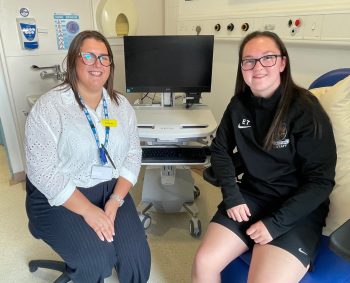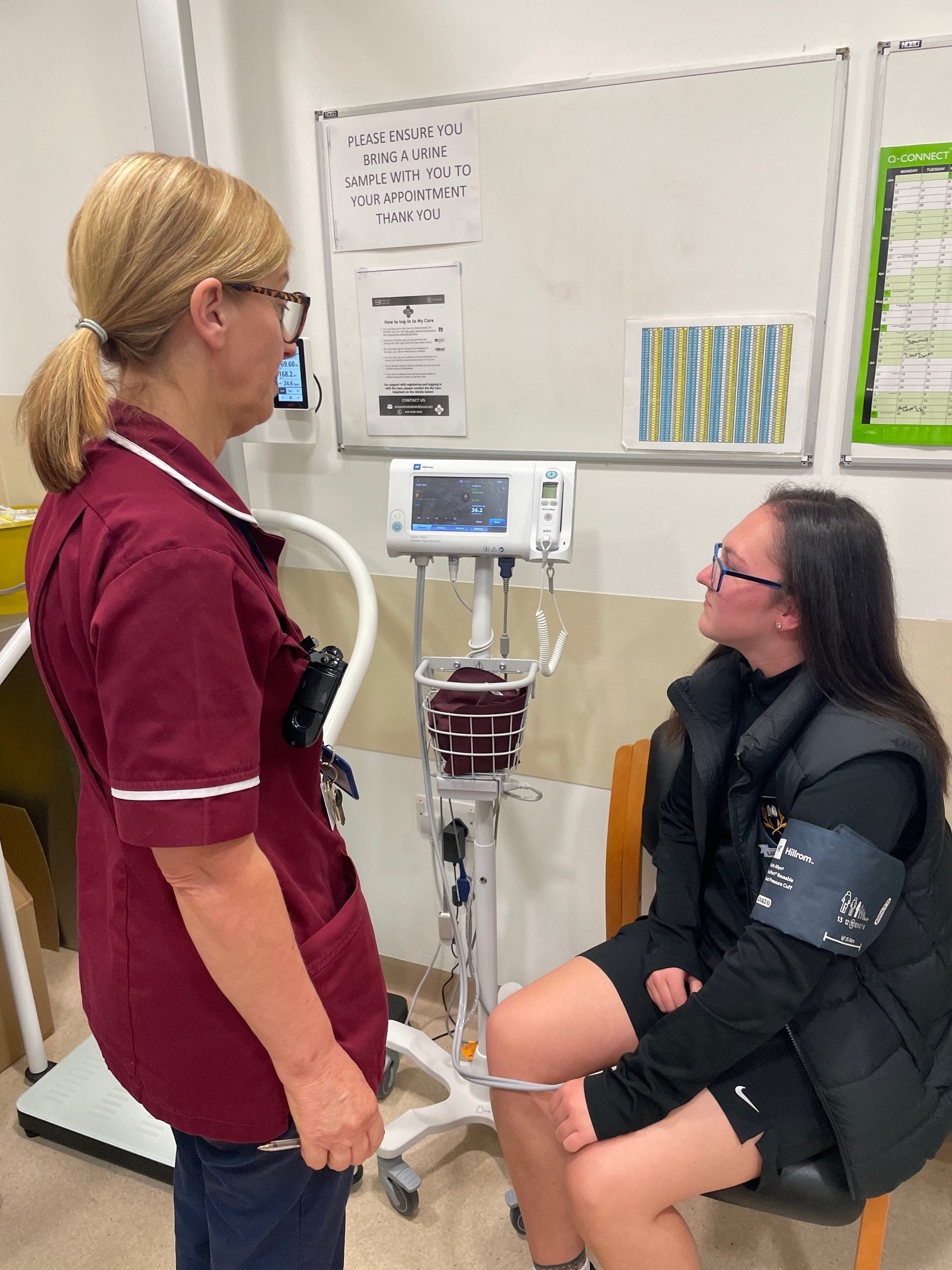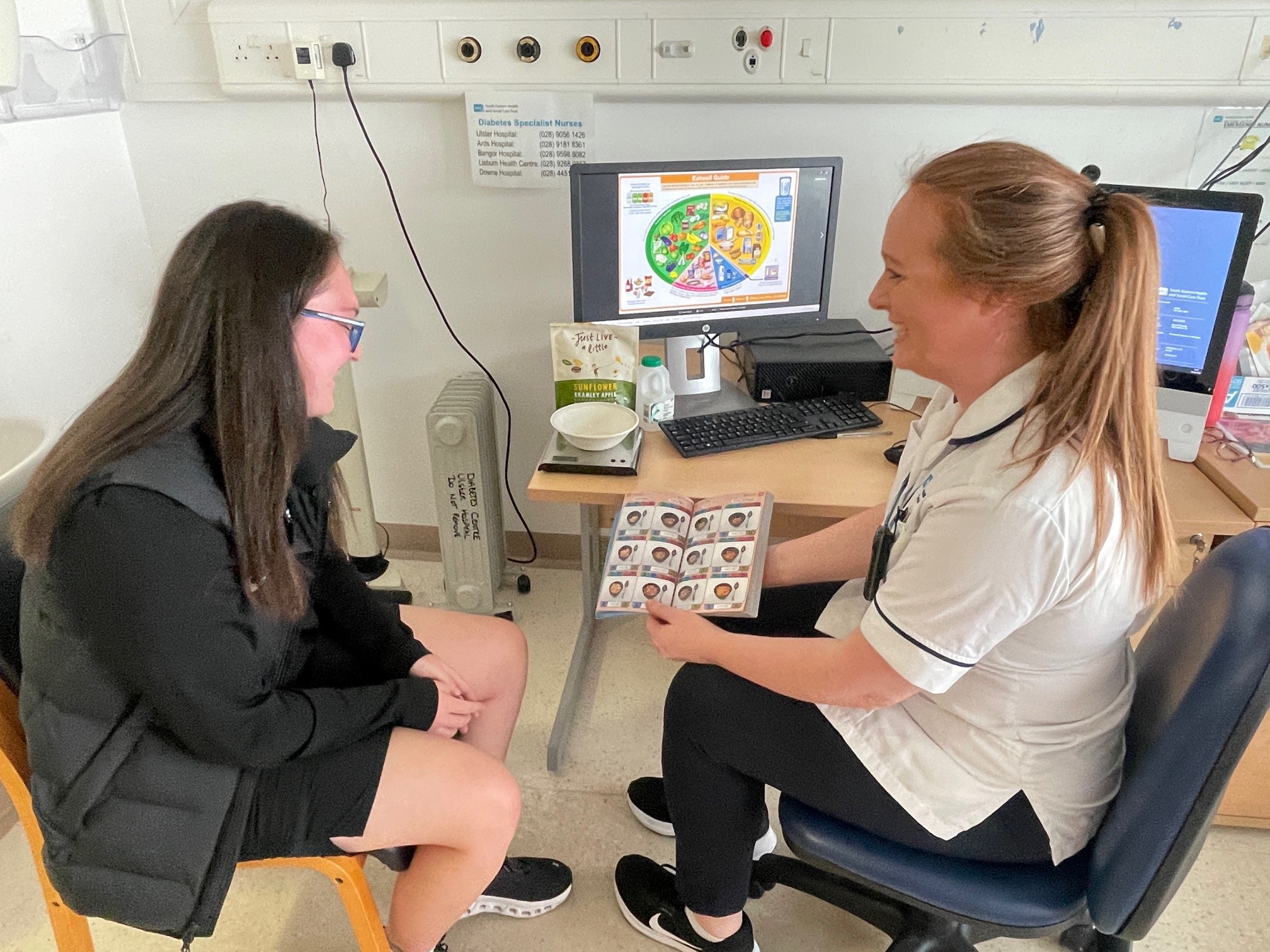
21-year-old Ellie Tennyson from Lisburn is bravely sharing her personal story of living with Type 1 Diabetes as part of Diabetes Awareness Week, a condition she was diagnosed with at just 12 years old.
Diabetes is a lifelong condition that causes a person’s blood sugar level to become too high. There are two main types, Type 1 Diabetes, where the body’s immune system attacks and destroys the cells that produce insulin and Type 2 Diabetes, which is far more common and typically occurs later in life when the body does not produce enough insulin, or does not react to it properly. In the UK, over 90% of adults with Diabetes have Type 2.
Ellie’s journey began in May 2016, when she started experiencing extreme fatigue, increased thirst, frequent urination and unexplained weight loss. At first, she thought it was due to playing football and being fit, until she suddenly became very unwell and was admitted to hospital, where she was diagnosed with Type 1 Diabetes.
Reflecting on the moment she received her diagnosis, Ellie said, “It was quite a shock. I had never expected it. I was not really educated about Diabetes and thought it was just down to sport. But then all these symptoms came at once after gradually building up for a long time, it was a big shock.”
Now, nearly a decade later, Ellie is in control of her condition, “My Diabetes is manageable. It is about not letting it control you, you control it! I play sport four times a week and while it is hard and every day is different, it is manageable.”
Ellie uses an Omnipod, a tubeless insulin pump, which she controls via her smartphone, “I enter my carbs and it calculates and delivers my insulin levels. My diet is balanced with fruit, vegetables, carbs, low sugar, low fat, everything in moderation. I would not be where I am without the Omnipod. It is hard to calculate everything manually, but this makes it so much easier.”
Having transitioned from the Paediatric to the Adult Diabetes Service, Ellie highlights the excellent support she has received throughout adding, “The support has been brilliant from childhood to adulthood, they are only ever a phone call away. During appointments, I can speak to a Doctor, Dietician, or whatever I need. I feel much more informed now. They are always introducing the best technology to help manage my condition.”
South Eastern Trust, Diabetes Young Adult Transition Co-ordinator, Catherine Harvey explains, “Type 1 Diabetes is an autoimmune condition where the body stops producing insulin, so insulin therapy is essential. There are four main symptoms of Diabetes that we look out for, running to the toilet, being thirsty, losing weight and being really tired. Type 1 Diabetes tends to be more of an acute onset with the 4 “T’s – Toilet (frequent urination), Thirsty, Tired and Thinner (unexplained weight loss). We diagnose by checking blood sugars and HBA1C levels, which show average blood glucose over the past three months.”
Catherine supports young people as they move from paediatric to adult services through a dedicated monthly Transition Clinic, which takes a multi-disciplinary approach involving both adult and paediatric teams. “Our goal is to ensure that every young person feels supported. We have helplines and rapid access clinics to help them manage their condition and know who to turn to if they need help.”
South Eastern Trust, Diabetes Specialist Dietician, Naomi Bleakly added, “Diet plays a crucial role in managing Diabetes. As well as helping to optimise the nutritional adequacy of the diet, we also educate our service users to carbohydrate count, so that they can learn to self-manage their insulin doses. This is shown to improve blood glucose control and provides much better flexibility and freedom over food choices for those living with Type 1 Diabetes. We are available during clinic visits and also offer telephone support between appointments.”
Catherine stresses the importance of raising awareness, “Diabetes never has a day off. Every day, those with the condition face decisions about their diet and insulin. Friends and family need to understand what it means to live with Diabetes, so they can offer support. We want young people to live well with Diabetes and know we are here to help them every step of the way.”
Ellie said, “It is so important to raise awareness, especially for young children and adults. Early diagnosis makes a huge difference. Diabetes is manageable. It is hard, but you will get through it and support is always there.”





